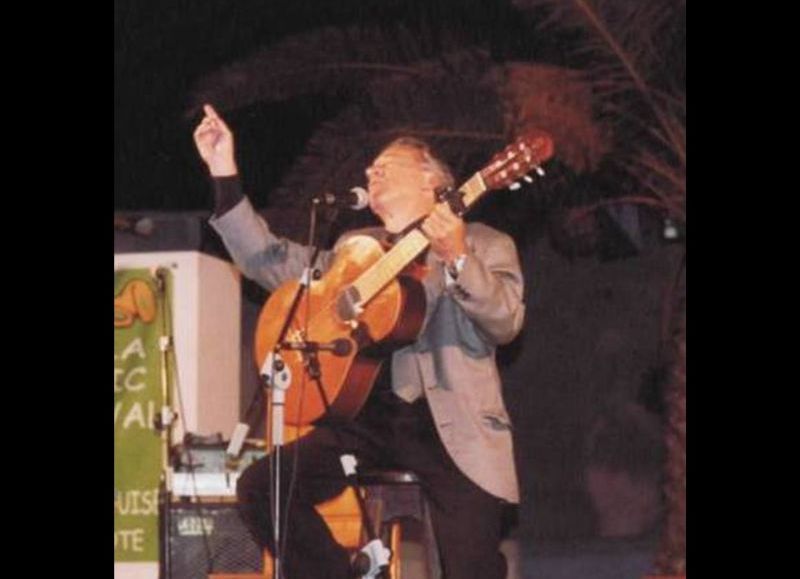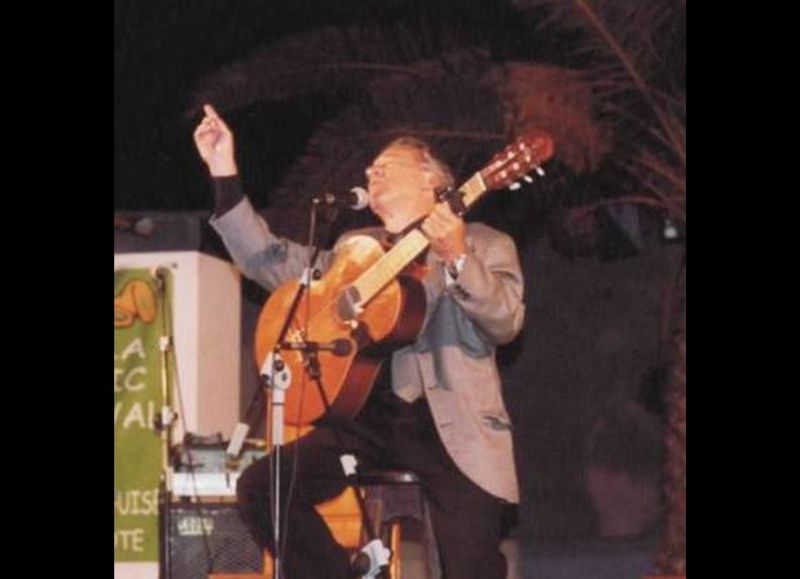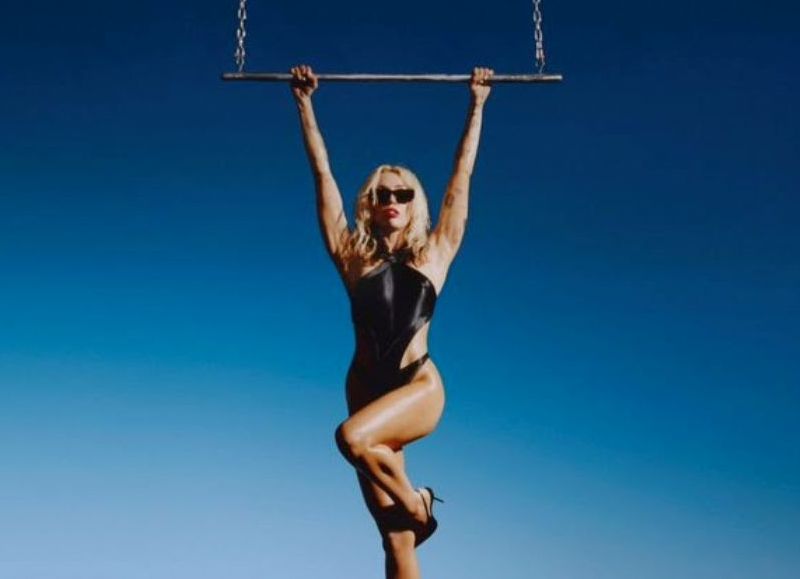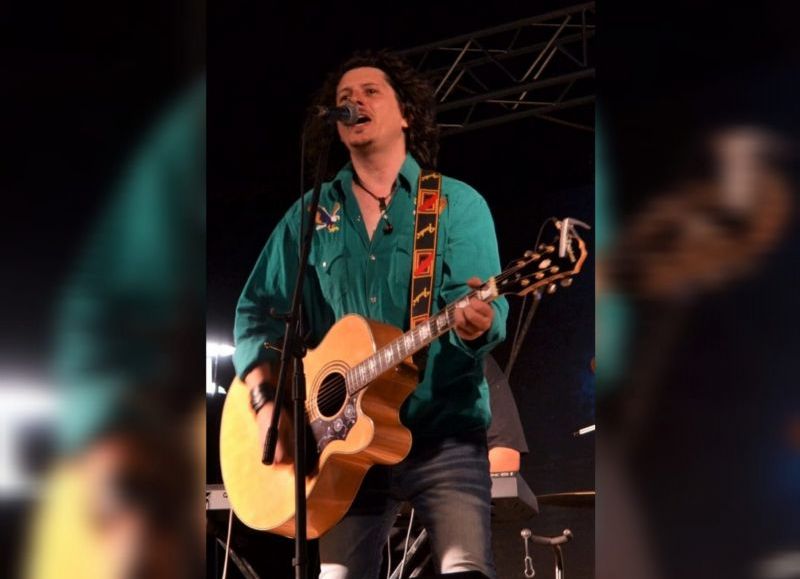Jhosemaría De Niro dio su mirada sobre la actualidad del mundo, fuera de su condición de cantante

En diálogo con NOVA estuvo el conocido cantante Jhosemaría De Niro, quien se desligó un rato de su rol como artista multifacético y se puso en rol de ciudadano para dar una mirada subjetiva del mundo actual.
¿Qué opinas de la situación política global de éste preciso momento del mundo?
La pregunta es muy amplia, pero intentaré resumir la respuesta. Primero recordemos que el mundo ha padecido guerras sin interrupción. Comencemos por la Segunda Guerra Mundial que significó seis millones de seres humanos asesinados en los Campos de Concentración, más sesenta millones entre muertos y desaparecidos.
Ellas fueron sucedidas por otras como La guerra de Corea; de Vietnam; de los seis días entre Israel y Palestina; la del Golfo; la de los Balcanes y sumado a todo ello, las permanentes conflagraciones en Medio Oriente con sus terribles consecuencias de millones de inocentes emigrando en busca de refugio, paz y condiciones de vida aceptables.
Actualmente estamos viviendo el conflicto Rusia-Ucrania. Es muy difícil o es imposible hacer reflexionar a los seres humanos. Siguen devorándose los unos a los otros. Veo un mundo sumido en permanente violencia y disputas pseudo-ideológicas con los poderosos.
Han instalado en las mentes de las masas como formas de dominación que son muy antiguas, pero que han cobrado la fuerza que en el pasado tuvieron el Fascismo o el Nazismo.
¿Ves algunos elementos que contribuyen a la violencia cotidiana?
Muchas cosas. Por supuesto. Los antiguos sabían del poder que tiene la comunicación para exacerbar a las masas. Desde los Egipcios, pasando por el Imperio Romano y los otros miles aparecidos en la historia de la humanidad, siempre se ha instalado la violencia ideológica para combatir a quien no piensa igual que el poder de turno.
En éste tiempo, la tecnología, que tiene efectos beneficiosos y también perniciosos, nos ha dado “las redes sociales”. A través de ellas las personas sueñan con dejar de ser anónimas y por un minuto de celebridad, muchas son capaces de cualquier barbaridad.
Desde la difamación hasta la divulgación de hechos de violencia que llegan hasta asesinatos que se muestran livianamente en plataformas digitales. El “falso arte” contribuye a la violencia y al desamor colectivo.
¿Puedes explicarte mejor?
Siempre se intentó ganar dinero con el cine, la música y las múltiples expresiones artísticas.
Existen buenas obras en todas las ramas del arte, pero nunca tanto como en la actualidad, la mala calidad se derrama como un río contaminante entre las almas desprevenidas de los pueblos.
Hay música que endurece los corazones y trata de ridiculizar los buenos sentimientos naturales del ser humano. En el cine abundan los filmes donde la muerte y el asesinato son mostrados con una falta de responsabilidad alarmante.
El cine de Hollywood está cayendo en el abuso de los “efectos especiales”. Muchos directores discuten mi concepto, diciendo que el cine “es ficción”. Pero abundan ejemplos de cosas horribles (asesinatos, robos, torturas) que algunos descerebrados han copiado de películas.
En la actualidad es raro ver películas de autor como Los Puentes de Madison y es común ver violencia terrible y gratuita. No quieren aceptar que con eso horadan el cerebro de los más vulnerables.
¿El poder de los gobernantes tiene influencia en todo éste descalabro?
La corrupción, la impudicia con que un gobernante se queda con millones de dólares en la cara de quienes lo votaron, la ineficacia de la justicia y la estupidez generalizada favorecen la idea de que no hay Ley y que vale todo para ser próspero.
¿Crees verdaderamente que los medios de comunicación, las redes, los malos ejemplos influyen tanto en la gente?
Lo creo y es algo que podemos comprobar. Cuando eres niño y vas a ver un film de cow boys sales del cine caminando e imitando gestos que acabas de ver en la pantalla. En la salida de los mega-conciertos, todos los asistentes salen queriendo ser como los músicos que acaban de ver. Las masas toman el mensaje que les dan. Si es bueno mejor, pero si es malo irán detrás de sus líderes.
Si se pone de moda gritar como desaforados, ése estilo será el predominante. La decadencia poética de las canciones populares no la inventé yo. En el mundo hispano-hablante, encontramos verdadera mediocridad que el público admira, cuando en el pasado hubo poetas admirables que contribuyeron al canto popular. Creo que es un fenómeno muy fuerte en América Latina.
¿En qué lugar te instalas tú, dada la situación general?
En la que siempre estuve. Yo me siento un señor antiguo, romántico a ultranza, crédulo y confiado. Las cosas que yo realizo tienen que ver con mi idea del mundo y con la que me criaron mis padres.
Miro las noticias y a veces me entristezco. Pero tomo las partituras de lo que debo estudiar, mi guitarra y mis poemas favoritos y trato de dar amor, si es posible darlo a través de esos elementos.
En el pasado, ¿fuiste un militante muy comprometido con los desposeídos?
Si porque yo mismo lo era. Nunca asumí la pobreza ajena como cosa folklórica. Si me jugaba era también por mi familia y por mí mismo.
¿Qué harás en los próximos años?
Tratar de seguir viviendo para cantar y grabar. Después del infierno y la soledad la vida me ha dado el regalo más hermoso que es poder dejar a quienes me sobrevivan, un extenso mensaje arrojado al mar en una pequeña botella.
Es muy poético lo que acabas de decir.
No es mío, sino una frase que Gabriel García Márquez me envió una vez, en 1991 después de escuchar mi álbum “Amiga”
¿Publicaste esa frase?
No. Nadie me hubiera creído. Está en la contratapa de mi primer álbum editado en España pero solamente con las inciales GGM. Era una frase para mi alma, no para la gente.
A conversation with Jhosemaría De Niro from New York on current affairs in the world. It is a personal look outside of his status as a singer and more related to his status as a citizen.
What do you think of the global political situation at this precise moment in the world?
The question is very broad but I will try to summarise the answer. First of all, let's remember that the world has suffered uninterrupted wars. Let's start with the Second World War which meant six million ( 6 ) human beings killed in concentration camps plus sixty million ( 60 ) dead and missing. They were succeeded by others such as the Korean War, the Vietnam War, the six-day war between Israel and Palestine, the Gulf War, the Balkan War and, added to all this, the permanent conflagrations in the Middle East with their terrible consequences of millions of innocent people emigrating in search of refuge, peace and acceptable living conditions. Now we are living through the Russia-Ukraine conflict.
It is very difficult or impossible to make human beings think. They continue to devour each other.
I see a world plunged in permanent violence and pseudo-ideological disputes that the powerful have installed in the minds of the people.
have installed in the minds of the masses as forms of domination that are very old, but that today have gained the strength that Fascism or Nazism had in the past.
Do you see some elements that contribute to everyday violence?
Many things. Of course.
The ancients shall never know the power of communication to inflame the masses. From the Egyptians, through the Roman Empire and the thousands of others that have appeared in the past, ideological violence has always been used to combat those who don't think the same way as the powers that be.
Nowadays, technology, which has both beneficial and pernicious effects, has given us "social networks". Through them, people dream of ceasing to be anonymous and for a minute of celebrity, many are capable of anything. From defamation to the dissemination of acts of violence that go as far as murders that are lightly shown on digital platforms.
The "False art" contributes to violence and collective unlove.
Can you explain better ?
There has always been an attempt to make money with cinema, music and the multiple artistic expressions.
There are good works in all branches of art, but never so much as today, the bad quality spills like a polluting river among the unsuspecting souls of the people.
There is music that hardens hearts and tries to ridicule the natural good feelings of human beings. Films abound in which death and murder are shown with an alarming lack of responsibility.
Hollywood cinema is falling into the abuse of "special effects". Many directors dispute my concept, saying that cinema "is fiction". But there are plenty of examples of horrible things (murders, robberies, tortures) that some brainless people have copied from films.
Nowadays it is rare to see auteur films like The Bridges of Madison and it is common to see terrible and gratuitous violence. They don't want to accept that they are drilling the brains of the most vulnerable.
Does the power of the rulers have an influence on this whole mess?
Corruption, the impudence with which a ruler keeps millions of dollars in the face of those who voted for him, the inefficiency of justice and general stupidity favour the idea that there is NO LAW and that anything goes to be prosperous.
Do you really think that the media, networks, bad examples influence people so much?
I think so and it's something we can prove.
When you are a child and you go to see a cowboy film, you leave the cinema walking and imitating gestures that you have just seen on the screen.
At the exit of mega-concerts, everyone leaves wanting to be like the musicians they've just seen. The masses take the message they are given. If it's good, so much the better, but if it's bad, they'll go after their leaders.
If it becomes fashionable to shout like crazy, that style will be the predominant one. I did not invent the poetic decadence of popular songs. In the Spanish-speaking world, we find real mediocrity that the public admires, when in the past there were admirable poets who contributed to popular song.
I think this is a very strong phenomenon in Latin America.
'Where do you settle in, given the general situation?
Where I've always been. I feel like an old-fashioned gentleman, a romantic to the extreme, credulous and trusting. The things I do have to do with my idea of the world and the one my parents raised me with. I watch the news and sometimes I get sad. But I take the scores of what I have to study, my guitar and my favourite poems and I try to give love, if it is possible to give it through those elements.
In the past, were you a militant who was very committed to the dispossessed?
Yes, because I was one myself. I never took on the poverty of others as something folkloric. If I took a gamble, it was also for my family and for myself.
What will you do in the next few years?
Try to keep on living to sing and record. After hell and loneliness life has given me the most beautiful gift which is to be able to leave to those who survive me, a long message thrown into the sea in a small bottle.
That's very poetic what you just said.
It's not mine, but a phrase that Gabriel García Márquez sent me once, in 1991 after listening to my album "Amiga".
Did you publish that phrase?
No. Nobody would have believed me. It's on the back cover of my first album released in Spain (vinilio) but only with the initials GGM. It was a phrase for my soul, not for people.










 Seguí todas las noticias de NOVA Uruguay en Google News
Seguí todas las noticias de NOVA Uruguay en Google News













